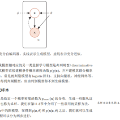Semi-supervised variational autoencoders (VAEs) have obtained strong results, but have also encountered the challenge that good ELBO values do not always imply accurate inference results. In this paper, we investigate and propose two causes of this problem: (1) The ELBO objective cannot utilize the label information directly. (2) A bottleneck value exists and continuing to optimize ELBO after this value will not improve inference accuracy. On the basis of the experiment results, we propose SHOT-VAE to address these problems without introducing additional prior knowledge. The SHOT-VAE offers two contributions: (1) A new ELBO approximation named smooth-ELBO that integrates the label predictive loss into ELBO. (2) An approximation based on optimal interpolation that breaks the ELBO value bottleneck by reducing the margin between ELBO and the data likelihood. The SHOT-VAE achieves good performance with a 25.30% error rate on CIFAR-100 with 10k labels and reduces the error rate to 6.11% on CIFAR-10 with 4k labels.
翻译:半监督的半导体自动计算器(VAE)取得了丰硕的成果,但也遇到了下述挑战:好的ELBO值并不总是意味着准确的推论结果。在本文件中,我们调查并提出了这一问题的两个原因:(1)ELBO目标不能直接利用标签信息。(2)瓶颈值存在,在此值之后继续优化ELBO,不会提高推论准确性。根据实验结果,我们建议SHOT-VAE在不引入更多先前知识的情况下解决这些问题。SHOT-VAE提供两种贡献:(1)新的ELBO近似值,名为光滑-ELBO,将标签预测损失纳入ELBO。(2) 以最佳的内推法为基础,通过降低ELBO和数据可能性之间的差值打破ELBO值瓶。SOT-VAE在CFAR-100上以10公里的误差率为25.30%,标签为10公里,并将CIFAR-10的误率降至6.11%,标签为4公里。




